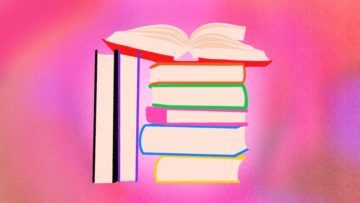Alisson Wilkinson in Vox:
 Even if you do manage to pick up a book, you might feel lingering guilt if it isn’t an important book, or at least an improving one. “There is no such thing as the correct book to read,” Allison Escoto reminded me over Zoom, a bookcase looming behind her. Escoto is the head librarian and education director at the Center for Fiction in Brooklyn. The canon of “important books” — what they are, and who gets to choose them — has been in a vibrant state of reexamination and expansion in recent years, she reminded me, and that means the “notion of the correct book, or the right book, or the acceptable book is itself under scrutiny.”
Even if you do manage to pick up a book, you might feel lingering guilt if it isn’t an important book, or at least an improving one. “There is no such thing as the correct book to read,” Allison Escoto reminded me over Zoom, a bookcase looming behind her. Escoto is the head librarian and education director at the Center for Fiction in Brooklyn. The canon of “important books” — what they are, and who gets to choose them — has been in a vibrant state of reexamination and expansion in recent years, she reminded me, and that means the “notion of the correct book, or the right book, or the acceptable book is itself under scrutiny.”
In fact, numerous studies seem to suggest that when it comes to the psychological benefits of reading, just doing it might matter as much or more than the content. Researchers have found that people who spend a few hours per week reading books live longer than those who don’t read, or who read only articles in periodicals; the sustained act of cognition that books demand seems to be the deciding factor. Other research finds a vast array of social-cognitive benefits that come with reading, particularly reading fiction, aiding the brain’s development in understanding others and imagining the world.
Some studies have suggested that reading fiction can increase empathy. But a perhaps even more surprising finding comes from researchers who discovered a short-term decrease in the need for “cognitive closure” in the minds of readers of fiction. In brief, the researchers write, those with a high need for cognitive closure “need to reach a quick conclusion in decision-making and an aversion to ambiguity and confusion,” and thus, when confronted with confusing circumstances, tend to seize on fast explanations and hang on to them. That generally means they’re more susceptible to things like conspiracy theories and poor information, and they become less rational in their thinking. Reading fiction, though, studies have found, tends to retrain the brain to stay open, comfortable with ambiguity, and able to sort through information more carefully.
More here.
